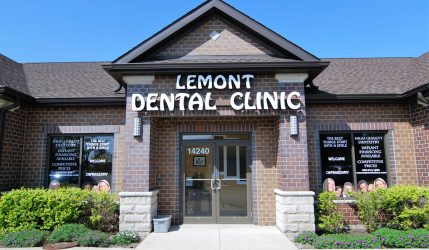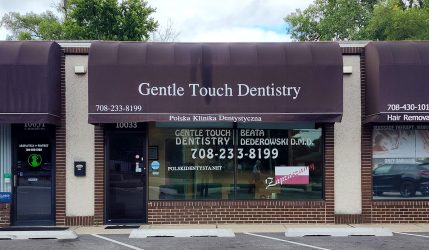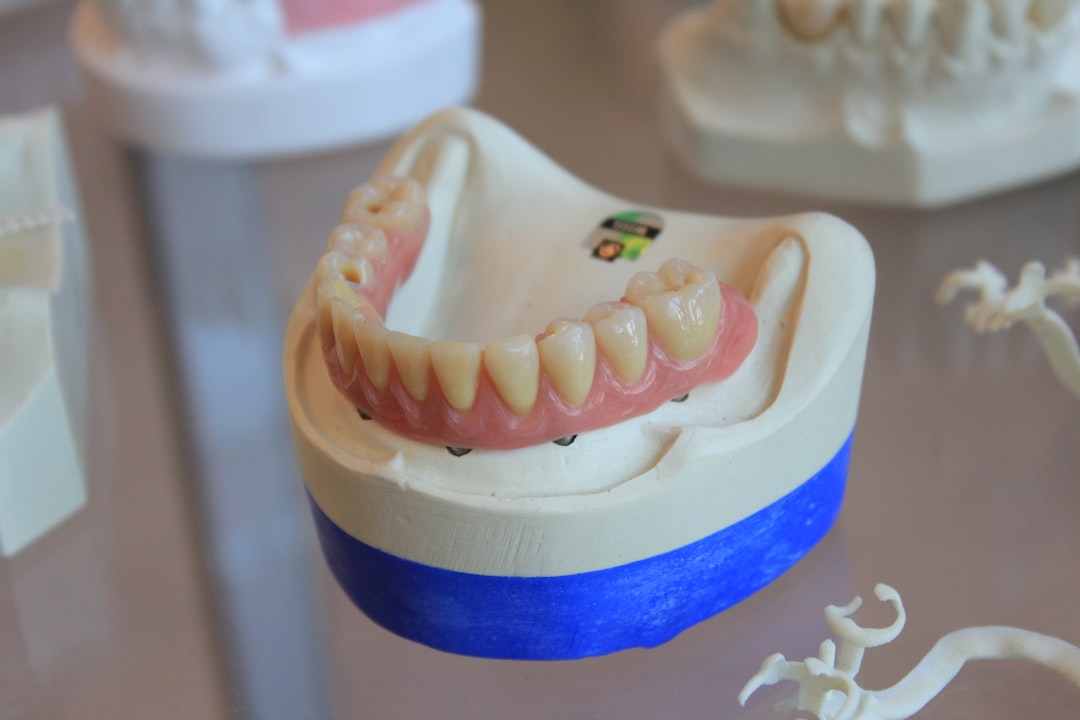Your Guide to Different Denture Options
Facing tooth loss often leads to the question: what are different types of dentures? The main categories include:
- Complete Dentures – Replace all teeth in an upper or lower jaw
- Partial Dentures – Fill gaps when some natural teeth remain
- Immediate Dentures – Placed right after tooth extraction
- Implant-Supported Dentures – Anchored to titanium posts in the jawbone
- Snap-In Dentures – Removable but secured to implants
- Flexible Dentures – Made from soft, lightweight materials
Millions of Americans experience tooth loss. Modern dentures have evolved far beyond old-fashioned, one-size-fits-all solutions. Today’s options range from traditional removable dentures averaging $1,968 to premium implant-supported solutions costing around $3,976.
Understanding your options is key to choosing the best solution for your health, comfort, and goals. Each type has unique benefits, from the practicality of conventional removable dentures to the stability of implant-supported versions that help prevent bone loss and improve chewing.
I’m Piotr Dederowski. At Lemont Dental Clinic & Gentle Touch Dentistry, I’ve helped countless patients steer their denture options. My goal is to make this decision clear and stress-free for you.
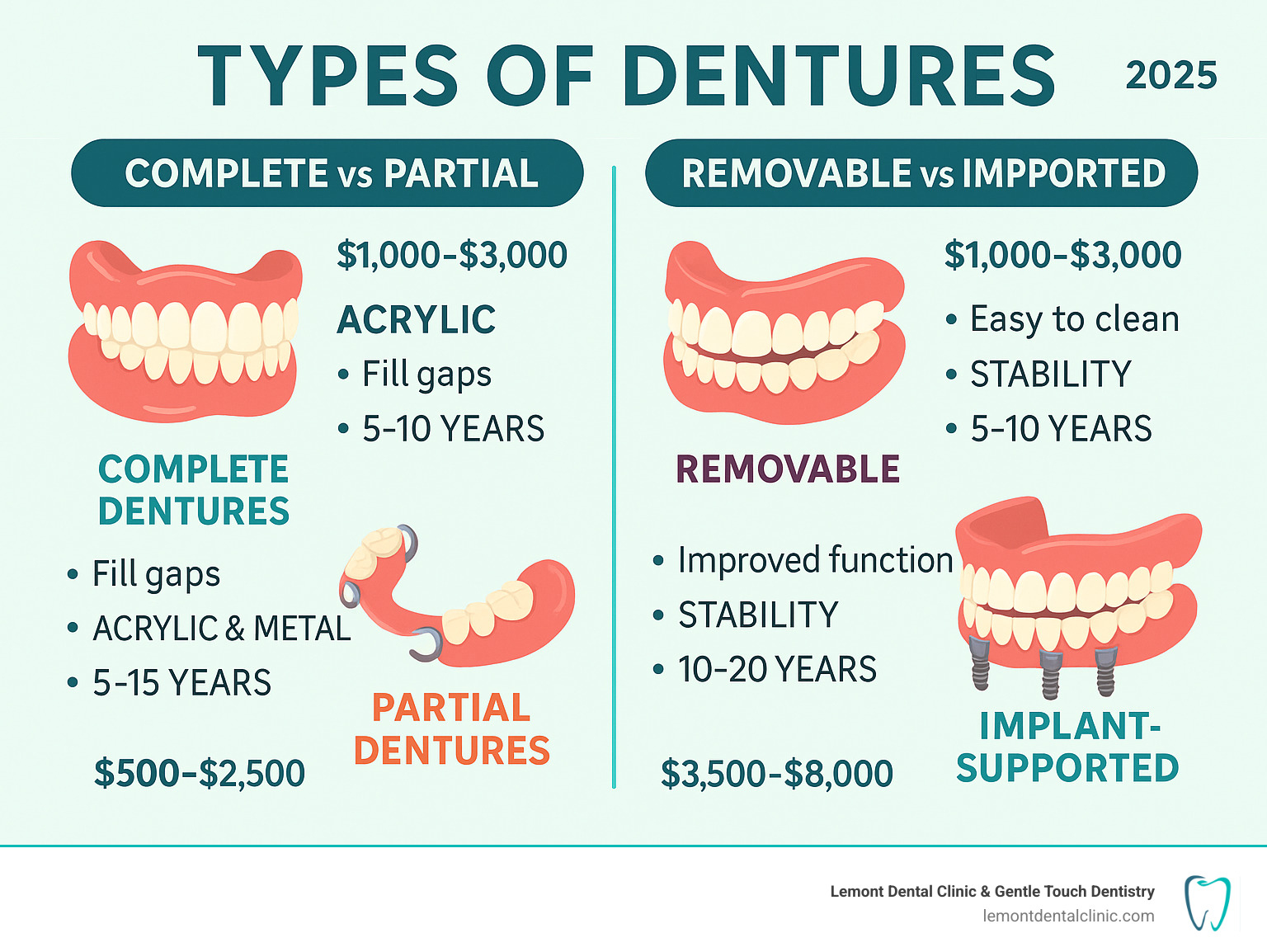
Removable Dentures: Traditional and Flexible Solutions
When exploring what are different types of dentures, removable options are a traditional and versatile solution. They can be taken out for cleaning and to rest your gums. Whether you’re missing a few teeth or need a complete replacement, there’s a removable option to fit your needs.
Full (Complete) Dentures

Full dentures replace all teeth in an upper jaw, lower jaw, or both. They feature a gum-colored plastic acrylic base that supports artificial teeth and stays in place through suction. Many patients use denture adhesive for extra security. Full dentures also support facial muscles, preventing a sunken appearance after tooth loss and helping you maintain your natural facial structure. With an average cost of $1,968 (ranging from $1,520 to $3,648), they provide a comprehensive solution for complete smile restoration. Learn more in our guide on fake teeth options, or from the American Dental Association’s denture resource.
Partial Dentures
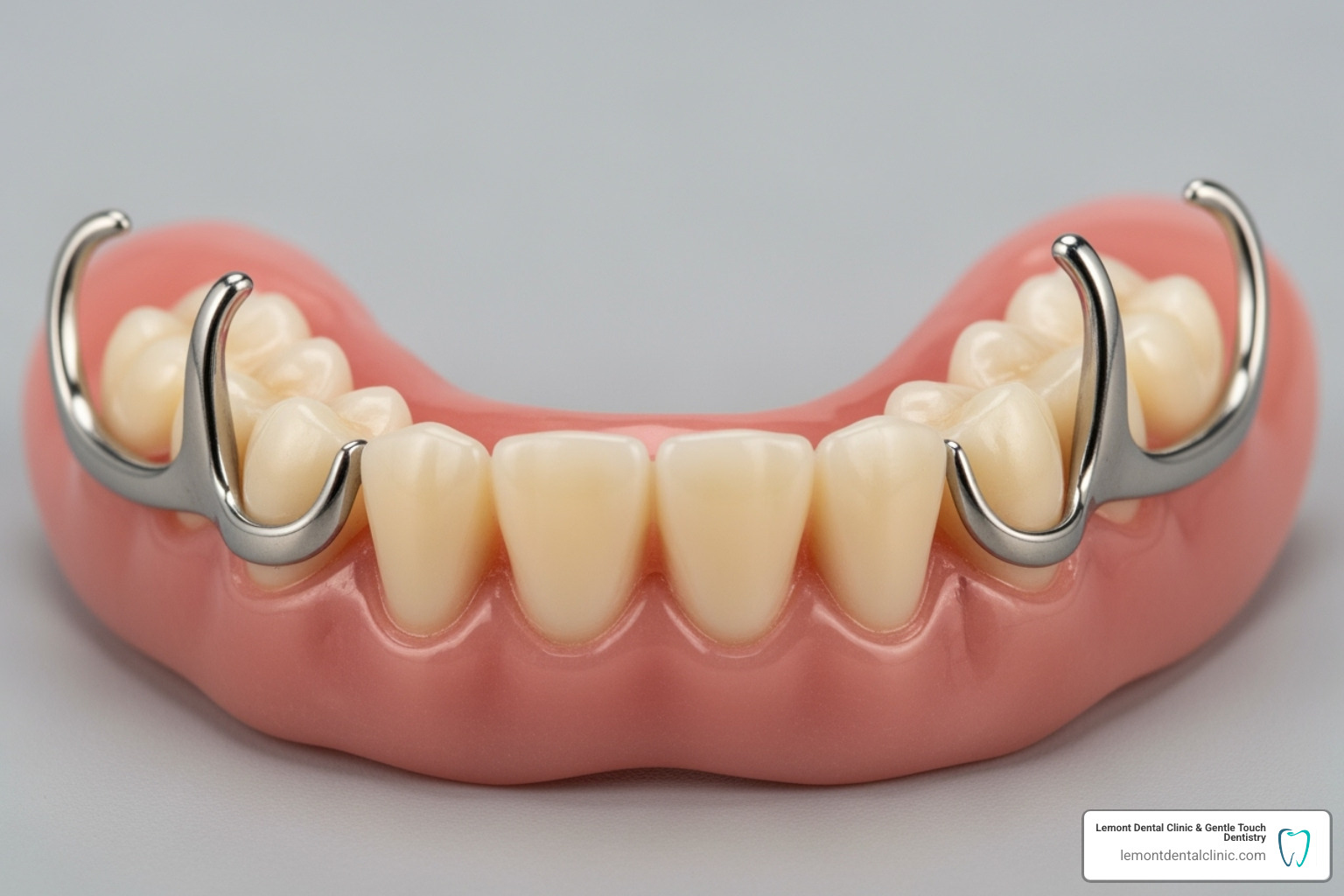
Partial dentures are ideal for replacing a few missing teeth when some healthy natural teeth remain. They consist of replacement teeth on a metal framework or plastic base, with clasps that attach to existing teeth for stability. A key benefit is preventing teeth shifting, which can cause bite problems. Partial dentures keep your remaining teeth in their proper position. Costs vary by material: resin partials average $1,738, while more durable metal partials average $2,229. Explore more options in our guide on types of fake teeth.
When getting full dentures, you’ll choose between immediate or conventional placement. Immediate dentures are placed right after tooth extraction, so you never go without teeth. They help control bleeding and swelling during the healing period. However, as your jawbone heals and changes shape, they require frequent adjustments and may need replacement. They cost around $2,178. Conventional dentures are made after your gums and jaw have fully healed. This waiting period allows for a more precise and better long-term fit. The trade-off is waiting for teeth versus getting a superior long-term fit from the start. Over time, jawbone shrinkage may still require a reline to maintain fit. Learn more in our article on what happens during a denture reline.
Flexible Dentures
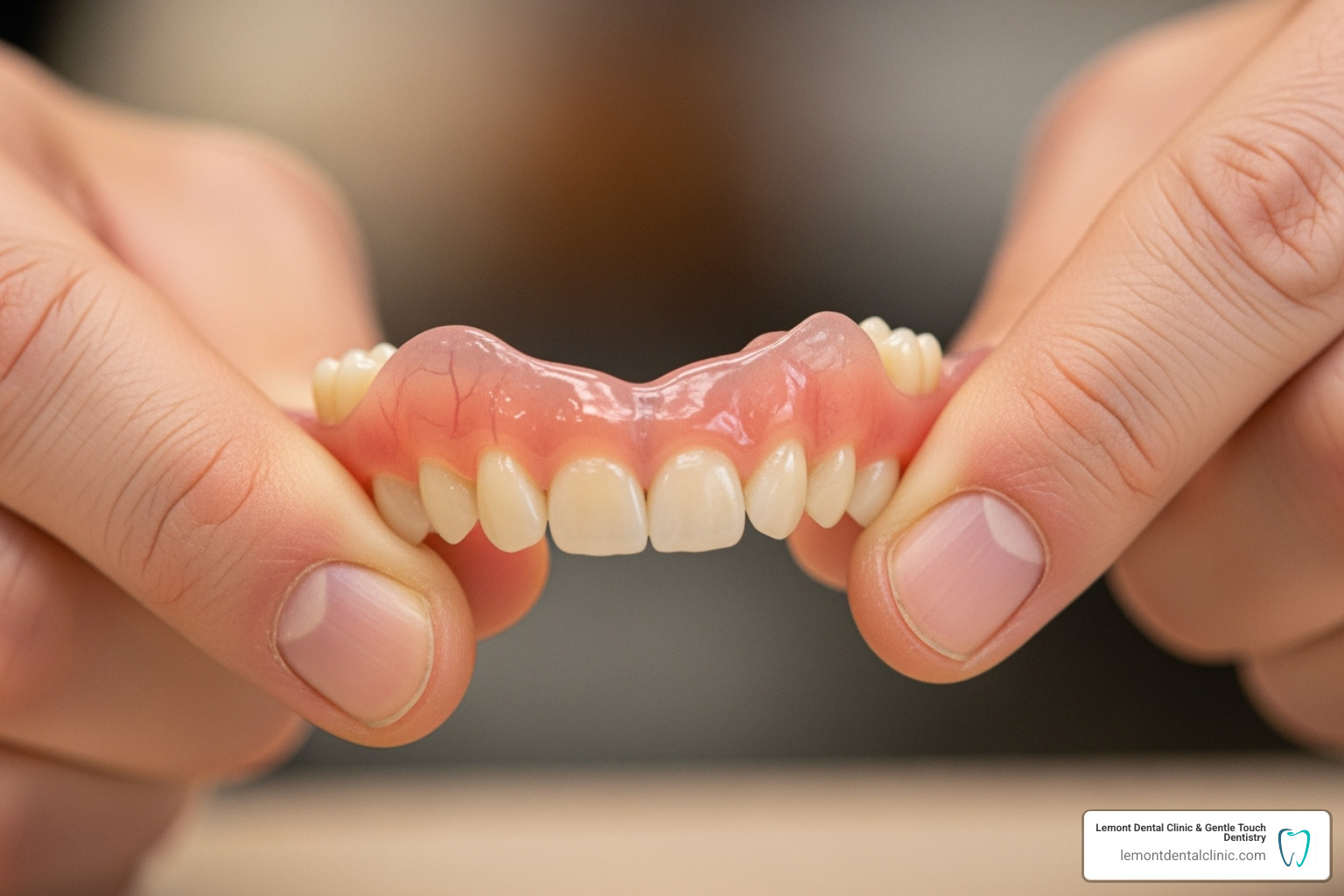
Flexible dentures are an innovative option known for comfort and appearance. Made from a lightweight thermoplastic resin, they bend to fit your mouth’s contours. A key benefit is having no metal clasps, which provides a more natural look. Patients report increased comfort as the material is gentle on the gums. They are also more durable if dropped. The aesthetic appeal is high, as they blend seamlessly with your gums. At an average cost of $1,761, they are a popular choice, especially for first-time wearers. While they require careful cleaning and can be harder to repair, many find the comfort and appearance worth the investment.
Implant-Based Dentures: The Pinnacle of Stability and Function
For those seeking more security than traditional dentures offer, implant-based solutions are the gold standard. Anchored directly to the jawbone, they provide superior stability for eating, speaking, and smiling. Let’s explore what are different types of dentures in this category.
Implant-Supported Dentures
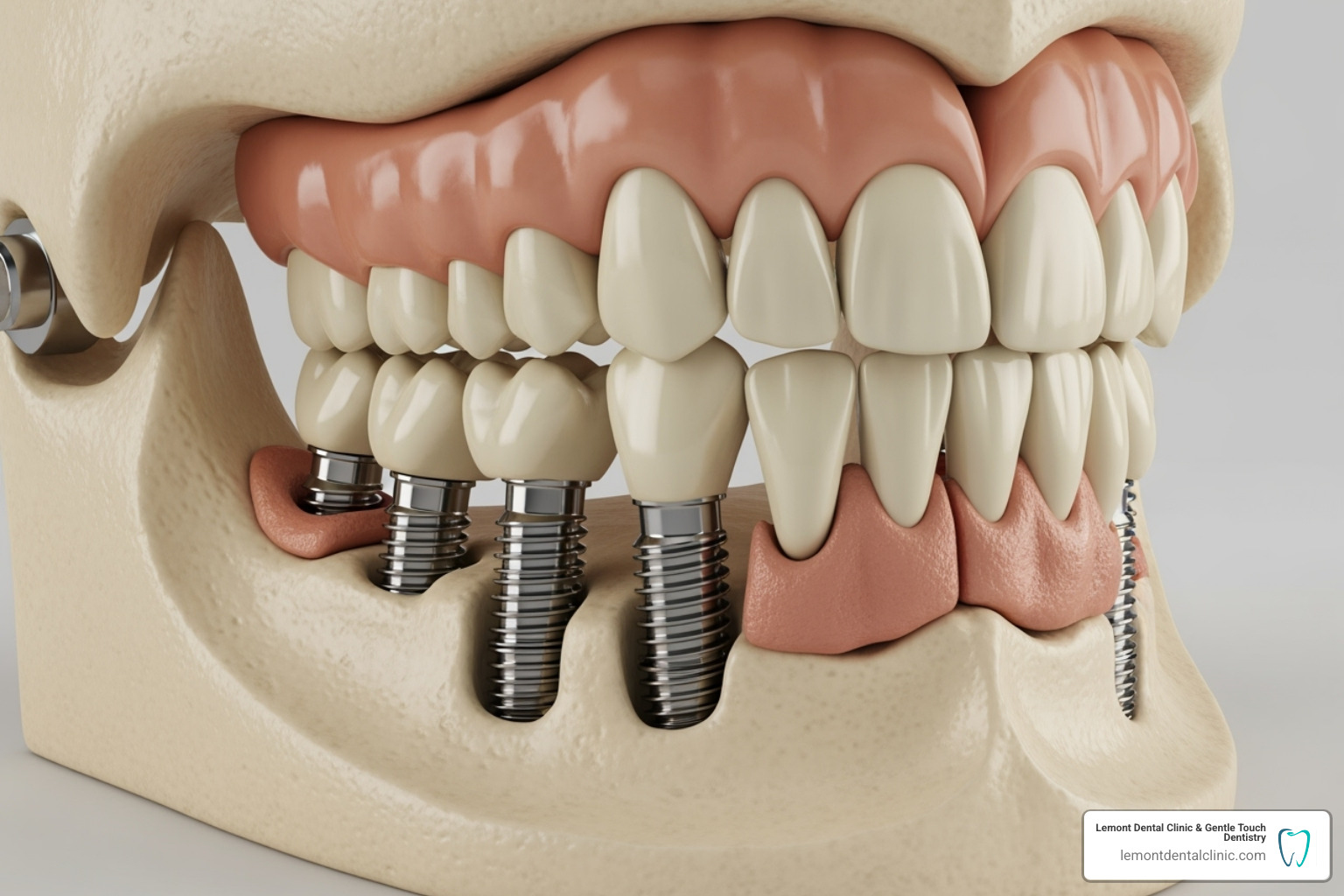
Implant-supported dentures connect to small titanium posts surgically placed in your jawbone. Through a process called osseointegration, the jawbone fuses with these implants, creating an incredibly stable foundation. This results in superior stability, improved chewing power, and helps prevent bone loss, which maintains your facial structure. These dentures can be fixed (dentist-removable) or removable for cleaning. For more on the surgery, see this resource on Information on jaw implants. The average cost is $3,976 (ranging from $3,055 to $7,294), and the long-term benefits often justify the higher initial investment.
Snap-In Dentures (Implant-Retained)
Snap-in dentures offer a balance of security and convenience. They use special locator attachments to ‘snap’ onto implants, providing improved stability over traditional dentures. They are removable for cleaning, making hygiene simple. A key advantage is that they require fewer implants (usually two to five per arch) than fixed options, and there’s no need for adhesives. With an average cost of $2,480, they are a popular choice for those seeking better stability without the cost of a fully fixed solution.
Overdentures
Overdentures are an innovative solution that fit over remaining natural teeth or dental implants. This helps preserve jawbone by providing stimulation that prevents bone shrinkage. Patients report increased stability and a more natural feel compared to conventional dentures. They offer better retention while remaining removable for cleaning. The average cost is $3,136 (ranging from $2,436 to $6,014), reflecting the custom engineering required to work with existing teeth or implants for superior comfort and function.
Custom: What Are the Different Types of Dentures Based on Quality?
Beyond the functional categories, what are different types of dentures also depends significantly on quality levels. The quality of materials and customization dramatically impacts how your dentures look, feel, and how long they’ll last. Think of it like buying a car – you can get basic transportation or a luxury ride, and the experience is vastly different.
Custom Dentures
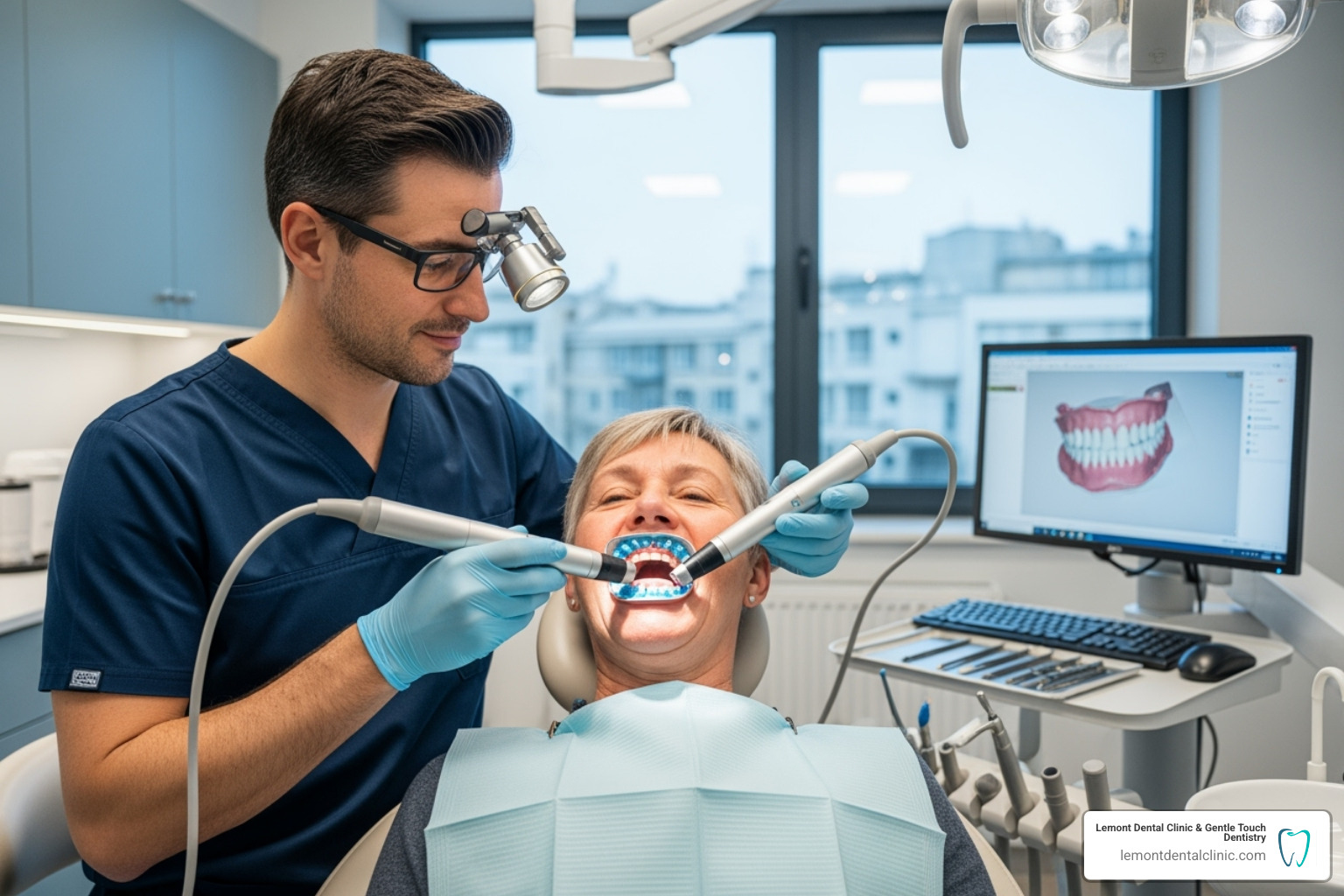
Custom dentures represent the gold standard of denture craftsmanship. These aren’t just teeth replacements – they’re carefully crafted to match your unique facial features, natural bite, and personal preferences. We create them using high-quality materials like premium acrylic resin for the base and beautiful porcelain teeth that closely mimic the translucency and color variations of natural teeth.
The magic happens in the details. Creating custom dentures involves taking precise measurements of your mouth, studying your facial structure, and even considering your personality when selecting tooth shape and color. We’ll have multiple appointments where you can try in your dentures and make adjustments to ensure they feel just right.
What makes custom dentures special is their personalized fit. Every curve of your gums is mapped and replicated, creating suction and stability that feels natural. The teeth are positioned to complement your facial features – whether you had a Hollywood smile or a more understated look, we can match your facial features and create the smile you want.
The investment in custom dentures averages around $6,514 for premium options, with some ranging from $5,000 to $12,438. While this represents a significant investment, patients consistently tell us the difference in comfort, confidence, and natural appearance makes it worthwhile. These dentures typically last longer and require fewer adjustments over time.
Choosing Your Perfect Fit: Factors, Costs, and Process
Making an informed decision about what are different types of dentures requires considering your oral health, lifestyle, and financial situation. At Lemont Dental Clinic & Gentle Touch Dentistry, we believe the best choice is one that fits not just your mouth, but your entire life.
Key Factors to Consider When Choosing
Choosing the right dentures involves several key factors to guide your decision.
The number of missing teeth narrows your options. Partial dentures are for a few missing teeth, while complete dentures are for those who have lost most or all teeth in an arch.
Your jawbone health is crucial, especially for implant-supported options. We assess bone density with X-rays to determine if your jaw can support implants.
Budget considerations are important. Prices vary based on materials and treatment complexity. We’ll help you find the best value.
Your comfort needs matter. If you have sensitive gums, flexible materials might be more comfortable than traditional acrylic.
Lifestyle factors influence the best choice. Your daily activities and food preferences help us recommend the most suitable option.
Aesthetic goals vary. Custom dentures offer the highest level of aesthetic appeal, closely matching your facial features and natural tooth color.
During your consultation, we’ll discuss your long-term goals, maintenance comfort, and dietary preferences to find the best solution for you.
Understanding the Costs and Materials
Higher-quality materials and more customization typically mean a higher price but also better comfort, appearance, and longevity.
- Traditional full dentures average $1,968, use an acrylic base, and offer moderate stability. They last about 7-10 years.
- Partial dentures cost $1,738 (resin) or $2,229 (metal). Metal versions offer better stability. Both last 7-10 years.
- Implant-supported dentures average $3,976, provide excellent stability, and can last 10+ years. The titanium implants can last a lifetime.
- Flexible dentures average $1,761, use thermoplastic resin for comfort, and offer good stability without metal clasps.
- Premium custom dentures average $6,514, use the highest-grade materials for excellent stability and a precise fit, lasting 10+ years.
For a detailed breakdown, visit our guide on Types of Dentures and Cost.
The Typical Denture Fitting Process
Getting fitted for dentures is a multi-step process to ensure a perfect result.
- Initial Consultation: We examine your mouth, take X-rays, and recommend the best options.
- Taking Impressions: We create precise molds of your mouth for the lab.
- Wax Model Try-in: You’ll try a wax model to evaluate the fit, bite, and appearance.
- Bite Registration: We record how your jaws align to ensure comfortable chewing.
- Final Fitting: We place your completed dentures and make initial adjustments.
- Follow-up Adjustments: We make any necessary tweaks as your mouth adapts to ensure optimal comfort.
Our team at Lemont Dental Clinic & Gentle Touch Dentistry provides personalized care throughout this process.
Frequently Asked Questions about Denture Types
We understand that choosing dentures brings up many questions. Here are the most common concerns we hear in our Lemont and Palos Hills offices about what are different types of dentures:
How long do dentures typically last?
Well-cared-for dentures typically last seven to 10 years, but this varies based on material quality and care. Your mouth changes over time, so your dentures will need adjustments. We recommend relining every one to two years to maintain a proper fit. Regular dental check-ups are crucial for monitoring your oral health and the fit of your dentures. For more information, see the Denture care tips from the American Dental Association.
Can you eat normally with all types of dentures?
There is an adjustment period when you first get dentures. We advise new wearers to start with soft foods cut into small pieces and gradually introduce a wider variety. Implant-supported dentures offer the best chewing power, allowing for a nearly normal eating experience. With traditional dentures, it’s best to avoid sticky or very hard foods like nuts, popcorn, and chewy candies, as they can dislodge the appliance. With practice, you can enjoy a varied diet.
What is the main difference between implant-supported and snap-in dentures?
Both use dental implants but function differently. Implant-supported dentures can be fixed or removable. The fixed type is permanently attached by your dentist and usually requires more implants (four to eight per arch) for maximum stability. Snap-in dentures are always removable by the patient. They “snap” onto fewer implants (two to five per arch). The key differences are removability and the number of implants required. Both offer significant stability advantages over traditional dentures and eliminate the need for adhesives.
Restore Your Confidence with the Right Denture Solution
Your journey to a restored smile starts with understanding what are different types of dentures and finding the perfect match for your unique needs. Whether you’re dealing with a few missing teeth or need complete tooth replacement, the right denture solution can truly transform your daily life – from savoring your favorite meals again to laughing freely without worry.
The beauty of modern dentistry is that there’s genuinely something for everyone. Many patients choose traditional removable dentures, while those seeking maximum stability and function often gravitate toward implant-supported options. Comfort-focused individuals frequently love the gentle feel of flexible dentures, and aesthetically-minded patients often choose custom solutions that perfectly match their facial features.
At Lemont Dental Clinic & Gentle Touch Dentistry, we’ve guided countless patients through this important decision. Every person’s mouth is different, every lifestyle is unique, and every budget has its considerations. That’s why we take the time to really understand your specific situation before recommending the best path forward.
Your quality of life matters to us. We know that choosing dentures isn’t just about replacing teeth – it’s about restoring your confidence, your ability to enjoy social gatherings, and your overall well-being. Our experienced team combines the latest technology with personalized care to ensure you receive a solution that fits not just your mouth, but your life.
Ready to take the next step? Your journey to a healthier, more comfortable smile begins with exploring your options and getting expert guidance custom specifically to your needs. Find Dentures Near Me
